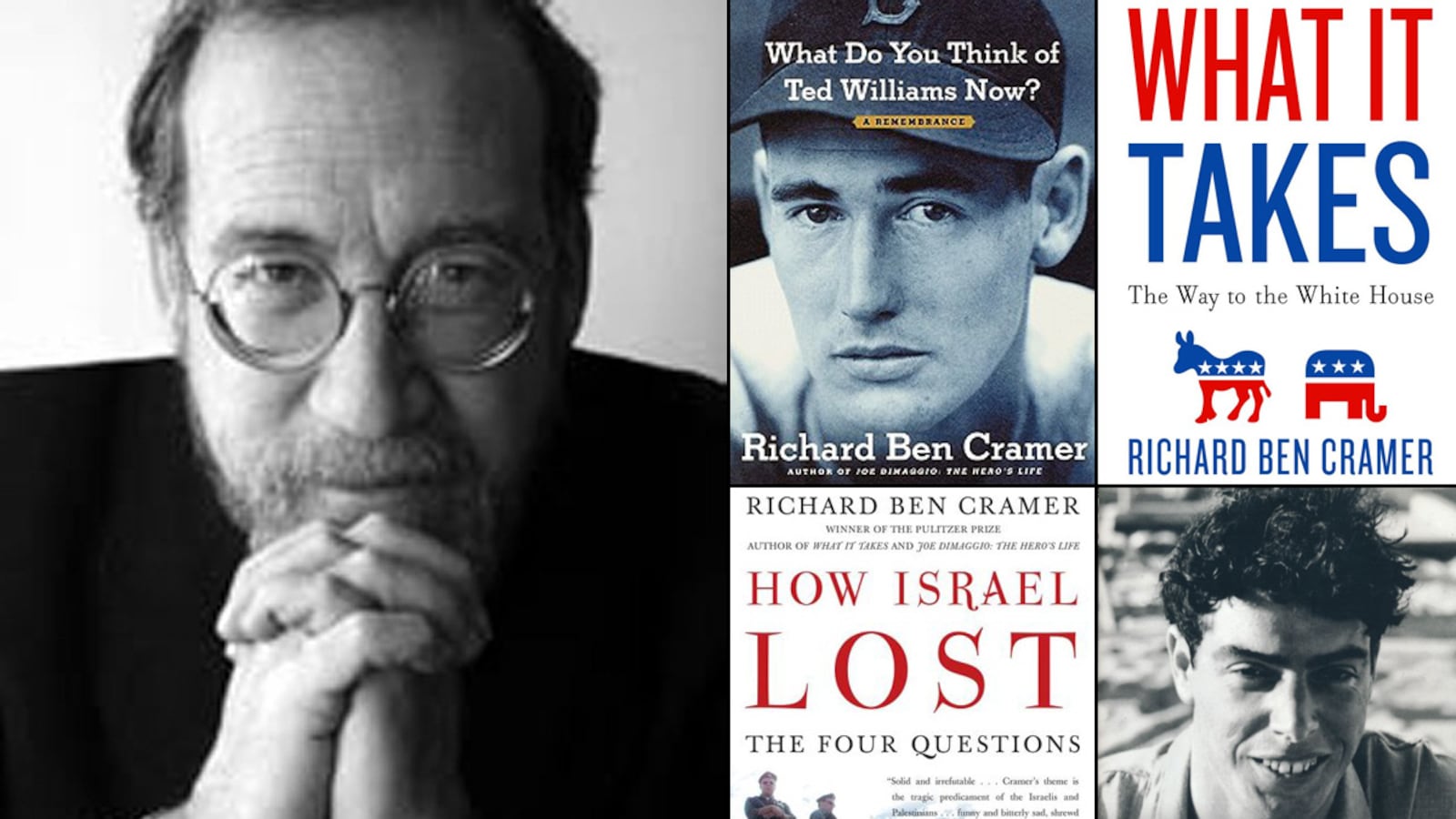News that Richard Ben Cramer died swept through the Twitterverse on Monday night, even before a hint of his passing hit major news outlets.

It was oddly appropriate, because the cult of Richard Ben Cramer was always first a word-of-mouth initiation, as in: “You’ve got to read this.” Journalists passed his work among them like samizdat, old articles referred to more than read, finally put online after persistent if not widespread demand. He was just that much better than anyone else.
For example, after the death of former Baltimore mayor and ex-governor Donald Schaefer, calls for Esquire to post Cramer’s iconic profile came from admiring journalists like Jon Heilemann and Ben Smith. The lede captured his style, the bracing balance of intimacy and immediacy:
How will they ever make a statue of him? They’ll have to, you know. He saved the town. But how could they bronze that stubby little body, the melon head, the double chin? Put him on horseback? Ha! One foot up on a pediment, with those clunky shoes he buys on sale? Gazing over a book? He doesn’t read, I guarantee you. No. If they really want him, they’ve got to get him mad. And paint the whole head rosy, and put the glitter in his eyes. And a couple of guys in suits cowering. That’d do it, and they could carve on the base: MAYOR ANNOYED: THE BEST MAYOR IN AMERICA, FOR A WHILE …
Now put that political profile side by side with Cramer’s other obsession, baseball. His DiMaggio biography was greeted as an instant classic, but his novella-length Ted Williams profile for Esquire drew accolades with their own ZIP code, like “perhaps the finest piece of sports-writing on record.” Reality somehow matches the hype.
Few men try for best ever, and Ted Williams is one of those. There’s a story about him I think of now. This is not about baseball but fishing. He meant to be the best there, too. One day he says to a Boston writer: “Ain’t no one in heaven or earth ever knew more about fishing.” “Sure there is,” says the scribe. “Oh, yeah? Who?” “Well, God made the fish.” “Yeah, awright,” Ted says. “But you have to go pretty far back.”
The “awright” tick from Ted captured much of what I loved most about Richard Ben Cramer’s writing—the unerring ear for dialogue, more suited to a novel than journalism. But Richard Ben Cramer bridged those worlds, and made it look—in the reading, at least—easy.
His opus, his Odyssey, was What It Takes—an epic take on what would otherwise be regarded as the eminently forgettable presidential election of 1988. But with a close focus on primary competitors for the Republican and Democratic nominations, Cramer captured the adrenaline-fueled insanity of all presidential campaigns. His chapters on Joe Biden remain the best profile of the current vice president, seen then as an ambitious and occasionally unwise young senator whose early life had been scarred by tragedy.
What It Takes is now regarded as the greatest campaign book ever written, but when it was released it was greeted with a collective shrug, coming almost four years after the main event. The book’s timelessness was not yet apparent, let alone an asset. But its reputation has grown as it inspired a generation of journalists who only dimly remember the1988 election in real time.
Writing about favorite writers, especially late on the night of their death, is daunting. I suppose Richard Ben Cramer’s death from lung cancer could not be called sudden, but it was a surprise to his fans, in part because he was just 62, and in part because his outsize talent made him seem touched by immortality. We just knew that there were more books in him.
Now we will have to hope for more thorough anthologies, bringing together his magazine and Pulitzer Prize–winning newspaper work, most notably for the Philadelphia Inquirer. The diamonds are now scattered throughout library stacks. When I was compiling Deadline Artists: Scandals, Tragedies and Triumphs, Carl Cannon emailed me a Richard Ben Cramer piece from 1981, whose lede he still clearly remembered from three decades before:
In a grimy gray drizzle, under ragged black flags that lifted and waved balefully in the fitful air; to the wail of a single piper, on streets through charred and blasted brick spray-painted with slogans of hate; by silent tens of thousands, past fathers holding sons face-forward that they might remember the day, past mothers rocking and shielding prams that held tomorrow’s fighters, past old men who blew their rheumy red noses and remembered their own days of rage … Bobby Sands was carried Thursday to a grave of raw Ulster mud.
Now, rest in peace, Richard Ben Cramer—literary journalist and, just maybe, the best that ever was.






